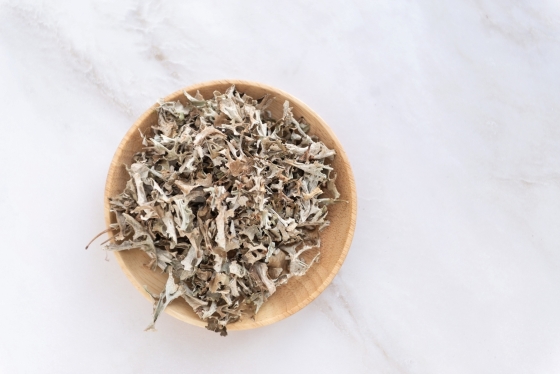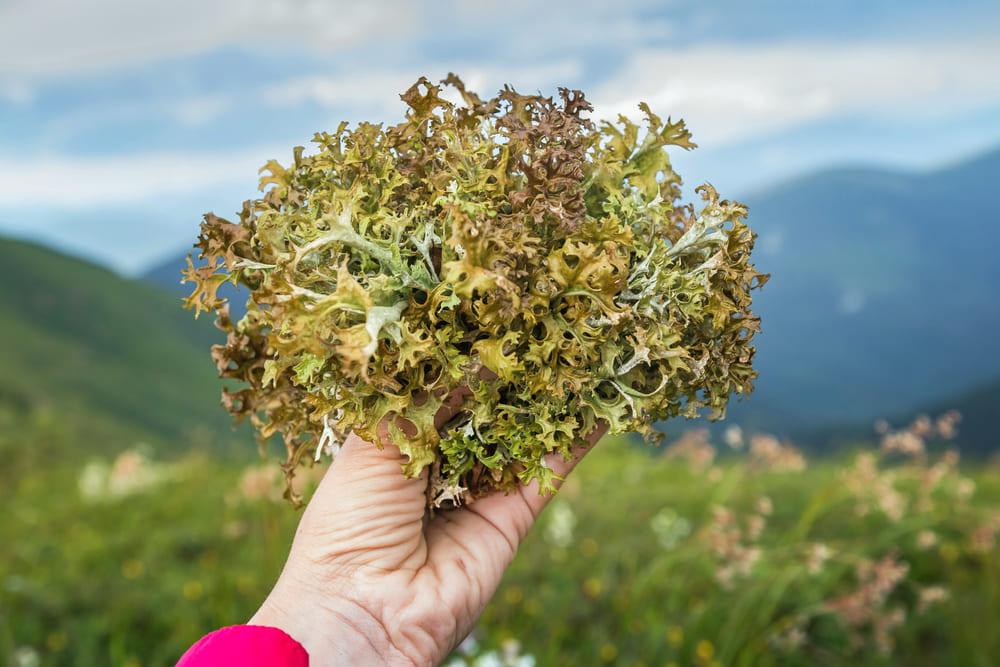Nature has long been a source of healing and wellness, offering countless remedies hidden in its forests, mountains, and even rocks. One such natural gem is lichen stone, commonly known in herbal medicine as Iceland moss (Cetraria islandica).
Though it’s not technically a stone, nor a true moss, this fascinating organism has been valued for centuries for its healing properties—especially in respiratory and digestive health.
What Is Lichen Stone?
Lichen stone is a type of lichen—a unique life form created through the symbiosis between a fungus and an alga. It grows in cold, alpine, and arctic regions, often carpeting rocks, soil, and trees in places like Iceland, Scandinavia, and mountainous parts of Europe and North America.
With its leafy, antler-like structure and earthy brown-green hue, lichen stone has a tough, resilient texture that belies its powerful internal chemistry.
Key Therapeutic Properties of Lichen Stone
Lichen stone is rich in bioactive compounds such as usnic acid, lichenin, mucilage, bitters, and polysaccharides, making it a potent ally in natural healing.
1. Soothes Cough and Sore Throat
One of its most popular uses is in treating dry coughs, irritated throats, and bronchial discomfort. The high mucilage content forms a soothing film over inflamed mucous membranes, providing natural relief. It’s often included in herbal syrups and lozenges.
2. Natural Antibacterial and Antiviral Agent
Usnic acid, a powerful compound found in lichen stone, has demonstrated antibacterial and antiviral activity. It helps inhibit the growth of harmful microorganisms, making it useful in preventing and treating infections—especially respiratory ones.
3. Promotes Digestive Health
The bitters and mucilage in lichen stone can help stimulate appetite, ease indigestion, and soothe gastric inflammation. Its traditional use includes support for people with ulcers, gastritis, or slow digestion.
4. Supports the Immune System
The polysaccharides in lichen stone have immunomodulating effects, helping to enhance the body’s natural defense mechanisms. It’s especially beneficial during cold seasons or for individuals with weakened immunity.
5. Gentle Detoxification
Some herbalists use lichen stone for its mild detoxifying properties. Its fiber-like mucilage can help absorb and eliminate toxins from the gastrointestinal tract.
How to Use Lichen Stone
There are several ways to incorporate lichen stone into your wellness routine:
- Infusion (Tea): Add 1 teaspoon of dried lichen to a cup of boiling water. Steep for 10–15 minutes. Strain and drink 1–2 times daily.
- Decoction: Simmer 1 tablespoon of lichen in water for about 10 minutes to extract the mucilage and bitters more effectively.
- Syrups and Lozenges: Available at natural health stores, ideal for sore throat and cough.
- Tinctures or Extracts: For a more concentrated dose—often used under professional guidance.
Precautions and Side Effects
Lichen stone is generally safe when used in moderation. However:
- In high doses, the bitter acids may cause gastric irritation.
- It’s not recommended for pregnant or breastfeeding women without professional advice.
- Always consult a healthcare provider if you have chronic conditions or take medications.

Lichen stone is more than just a rugged plant growing on rocks—it’s a natural healer with a rich history in traditional medicine. Whether you’re battling a seasonal cough or looking for gentle digestive support, this humble lichen offers a plant-powered remedy worth exploring.
Have you ever tried lichen stone?
Share your thoughts or remedies in the comments below!

